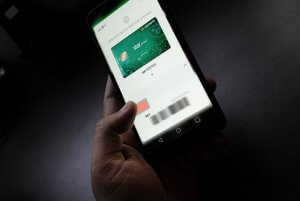- Commercial disputes
- Financial services
- Financial services

Shorter Reads
Supreme Court’s downplaying of the Quincecare duty does not mean banks are off the hook on customer fraud claims
Robin Henry, Head of Dispute Resolution at Collyer Bristow, comments on the Supreme Court decision in Philipp v Barclays [UKSC2023 25]
1 minute read
Published 21 July 2023
Key information
Although the Supreme Court’s decision in Philipp v Barclays has refused to extend the “Quincecare” duty of banks to assist victims of authorised push payment (“APP”) fraud , the new picture which has emerged is not quite the unqualified victory for the banks that some of the early reactions have suggested.
The Court held that where the customer’s agent is trying to defraud the customer, this is not a breach of a special Quincecare duty at all but a situation where the agent as a matter of general principle has no authority to issue the instruction since it was for a fraudulent purpose. In that case the bank will be protected if it complies with the instruction only if the agent had apparent authority. However, if the bank is on notice that the agent does not have actual authority, it will be liable if it proceeds with the transaction unless it has made enquiries as to whether the agent did have authority. In this scenario the bank will be liable even if it cannot be proved that the loss would have been avoided following its enquiries.
In terms of APP fraud, the bank is under an obligation to comply with the customer’s instructions, subject to its duty to do so with a reasonable degree of skill and care. The Court declined to lay down general principles for what that might entail (as this was originally only an application to strike out), but it did say that the bank would at least have to have information (which was not known at the time to the customer) that a fraud was being committed and had then proceeded with the transaction nonetheless. In this case, the customer had been made aware of the likely fraud by the police and had still wanted to proceed. It was only later, when the police tipped off the bank, that the bank refused to make any more transfers. It was only at that point that the court thought the bank’s duty of care could arise.
On different facts, it may therefore still be possible that where banks do not act with reasonable care and skill, they will be liable to victims of APP fraud.
Related content
Shorter Reads
Supreme Court’s downplaying of the Quincecare duty does not mean banks are off the hook on customer fraud claims
Robin Henry, Head of Dispute Resolution at Collyer Bristow, comments on the Supreme Court decision in Philipp v Barclays [UKSC2023 25]
Published 21 July 2023
Associated sectors / services
Authors
Although the Supreme Court’s decision in Philipp v Barclays has refused to extend the “Quincecare” duty of banks to assist victims of authorised push payment (“APP”) fraud , the new picture which has emerged is not quite the unqualified victory for the banks that some of the early reactions have suggested.
The Court held that where the customer’s agent is trying to defraud the customer, this is not a breach of a special Quincecare duty at all but a situation where the agent as a matter of general principle has no authority to issue the instruction since it was for a fraudulent purpose. In that case the bank will be protected if it complies with the instruction only if the agent had apparent authority. However, if the bank is on notice that the agent does not have actual authority, it will be liable if it proceeds with the transaction unless it has made enquiries as to whether the agent did have authority. In this scenario the bank will be liable even if it cannot be proved that the loss would have been avoided following its enquiries.
In terms of APP fraud, the bank is under an obligation to comply with the customer’s instructions, subject to its duty to do so with a reasonable degree of skill and care. The Court declined to lay down general principles for what that might entail (as this was originally only an application to strike out), but it did say that the bank would at least have to have information (which was not known at the time to the customer) that a fraud was being committed and had then proceeded with the transaction nonetheless. In this case, the customer had been made aware of the likely fraud by the police and had still wanted to proceed. It was only later, when the police tipped off the bank, that the bank refused to make any more transfers. It was only at that point that the court thought the bank’s duty of care could arise.
On different facts, it may therefore still be possible that where banks do not act with reasonable care and skill, they will be liable to victims of APP fraud.
Associated sectors / services
- Commercial disputes
- Financial services
- Financial services
Authors
Need some more information? Make an enquiry below.
Subscribe
Please add your details and your areas of interest below
Article contributor
Robin
HenryPartner - Head of Dispute Resolution Services
Specialising in Banking & financial disputes, Commercial disputes, Corporate recovery, restructuring & insolvency, Financial regulatory, Financial Services and Personal insolvency
Enjoy reading our articles? why not subscribe to notifications so you’ll never miss one?
Subscribe to our articlesMessage us on WhatsApp (calling not available)
Please note that Collyer Bristow provides this service during office hours for general information and enquiries only and that no legal or other professional advice will be provided over the WhatsApp platform. Please also note that if you choose to use this platform your personal data is likely to be processed outside the UK and EEA, including in the US. Appropriate legal or other professional opinion should be taken before taking or omitting to take any action in respect of any specific problem. Collyer Bristow LLP accepts no liability for any loss or damage which may arise from reliance on information provided. All information will be deleted immediately upon completion of a conversation.
Close






































































